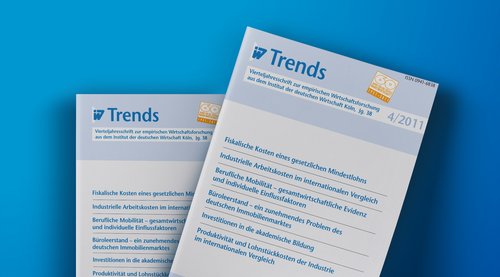Calculations based on the IW-Simulation Model suggest that a minimum wage of 8.50 euro would save the government 5 billion euro if it had no negative effects on the labor market. If the minimum wage, however, leads to significant job losses among low-skilled workers it would burden taxpayers with an extra 0.8 billion euro. If the job losses include a sizable number of full-time workers the extra tax burden will rise to 6.6 billion euro. In the long run the negative effects on the fiscal balance would presumably grow because companies would invest less and the human capital of the unemployed would degenerate.
Download | PDF


